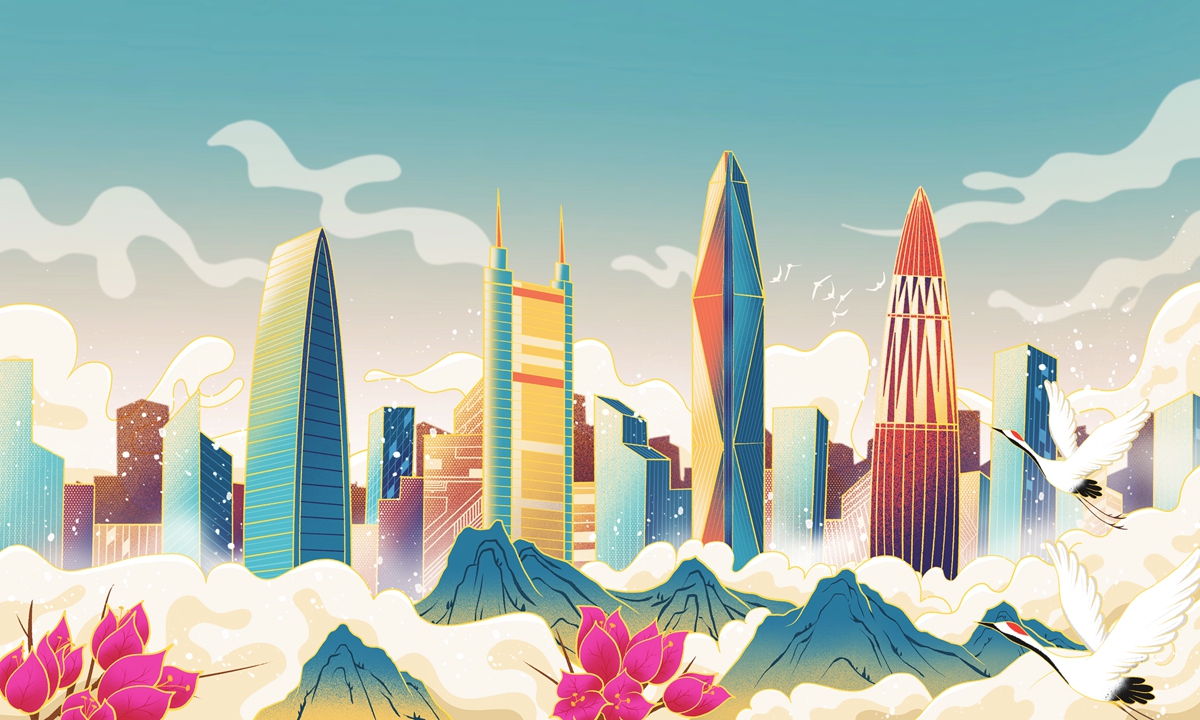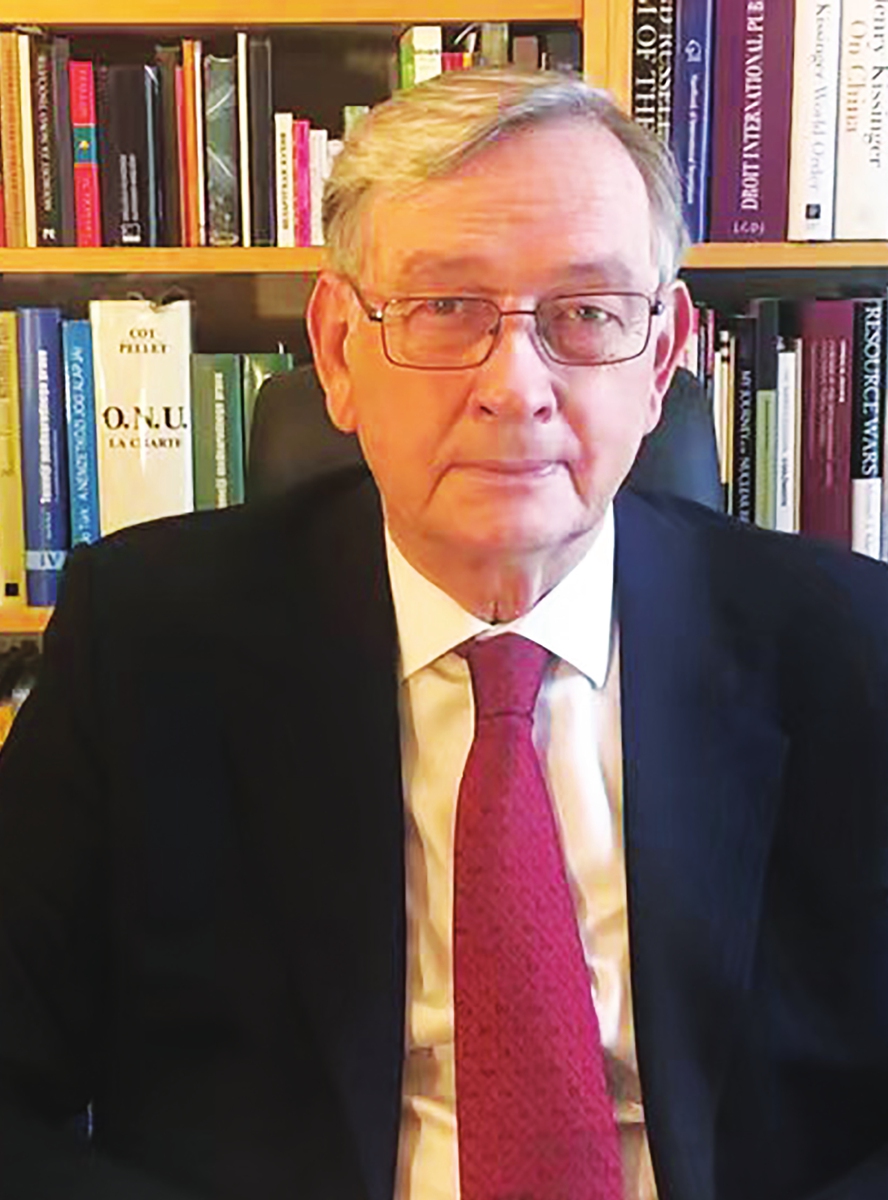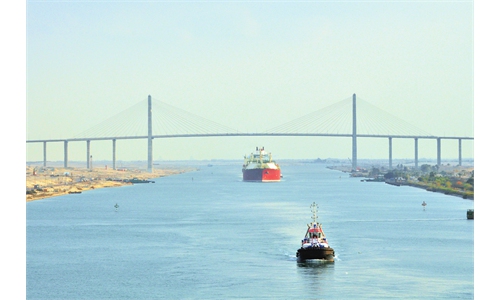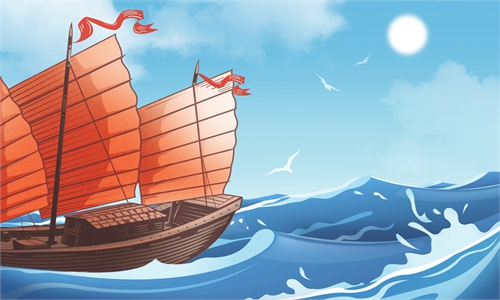Past decade shows China's capacity to adjust to the changing circumstances: former Slovenian president

Photo: VCG
Editor's Note:During the past decade, the world has increasingly witnessed a trend of "the East is rising, and the West is declining" in the spheres of economy, security and discourse power. Western countries, particularly the US, plagued by internal woes, have sought the old path of passing the buck and instigating turmoil elsewhere to ease their own pressure. China, representative of the emerging countries, is proposing new solutions to global problems. By advocating win-win development, facilitating consultation and reconciliation and proposing a balanced and effective security mechanism, China is striving to build a community with a shared future for mankind.
In the 10th piece of the series, Danilo Türk (Türk), former president of Slovenia, told Global Times (GT) reporter Lu Yuanzhi that over the last decade, China has shown, once again, its ability to adjust to changing circumstances. He noted that the most impressive feature of the past decade is the resilience and determination of the people of China to strive toward new levels of development.
GT: You have visited China for several times. How do you see China's changes over the last decade? What role has the Communist Party of China (CPC) leadership played in it?
Türk: The last decade was very dynamic. For China this was a decade of important achievements such as the eradication of extreme poverty and becoming one of the technologically most advanced powers with the possibility of achieving a leading role in technology in the next decade. In a historically uniquely short period it has moved from being "the factory of the world" to a technological leader and a source of new visions - such as the vision of "a new era of eco-civilization."
At the same time China has shown, once again, its ability to adjust to the changing circumstances. The concepts and practices of "dual circulation" and "common prosperity" demonstrate the capacity to adjust. The resilience and determination of the people of China to strive toward new levels of development is the most impressive feature for a foreign observer like me. Clearly, this requires strong leadership that CPC has provided. It is impressive to hear, from President Xi Jinping and from CPC, the continued emphasis on the importance of innovation. Indeed, innovation is the key to progress toward new levels - not only in technology, but in economy and socio-political development as well.
GT: President Xi proposed the Global Security Initiative this year and Global Development Initiative last year. What is your view on the significance of China's solution for global governance?
Türk: Each of these two initiatives provides an important conceptual framework for the future. Now, they have to be followed up by more detailed projects. They can be many and quite diverse. Let me offer two examples. In the sphere of economic and social development, new ways have to be found to solve the growing debt crisis affecting a large number of developing countries and, in parallel, new models of partnership between public and private creditors to bolster investment in defense of global public goods, in particular global climate.
China is a major player in global finance. Institutions like the IMF and the World Bank will have to be given new mandates and groupings like the Paris Club of creditors have to be reformed. This kind of tasks should be part of the implementation of the Global Development Initiative. Another major area is global action for eradication of extreme poverty and for social improvement in general. The preparation of the World Summit on Social Development in 2025 that was proposed by the UN Secretary-General will provide an opportunity for action in that regard.
The Global Security Initiative, on the other hand, will have to contribute to revival of the global security system with the UN at its center. Right now the world is moving toward a dangerous fragmentation of the global security landscape. Exclusive security arrangements such as NATO can be helpful to global security but only if they function within a globally established balance of power and within international law. International security cannot be based on exclusive clubs alone. Global security is indivisible. For the global peace to be preserved, the United Nations - the only inclusive global organization must be given a proper role.
GT: Over the past decade, how has China influenced the global order? What contributions will China make in the future?
Türk: China's influence in the past decade has been significant. China played an important role in overcoming the global financial crisis that started in 2007 and lasted for a number of years. In that situation, China's role within the G20 was critical for success. China also played an important role in the preparation of the Paris Agreement on Climate Change in 2015 and to the consensus, within the UN, on Sustainable Development Goals in the same year. These are a few examples of China's positive role in the global order.
The future is more difficult to predict. Right now the world is characterized by competition and confrontation rather than by cooperation. China can make a critically important contribution in finding a better balance between competition that is likely to remain strong and cooperation that is necessary and has to be strengthened. Today, the world needs a breather - and serious moves toward relaxation of tensions, a new generation of détente among the major powers. From the second half of the last century we know that the period of détente enabled the most significant progress. The leaders of today know well what détente requires. China, for her part, can help in guiding the political processes of the world towards a shared and better future for all.
GT: When Chinese President Xi Jinping in May exchanged congratulatory messages with Slovenian President Borut Pahor to celebrate the 30th anniversary of the establishment of diplomatic ties between the two countries, President Pahor said as a member of the EU, Slovenia actively supports the strengthening of EU-China relations. But noticeably there are some voices in Europe calling the continent to decouple with China, and to join the US in countering China. What do you think of such voices? Are you optimistic about the future of China-Europe ties?
Türk: Decoupling is an undesirable phenomenon. But it is also complex. There are serious analyses suggesting that "coupling and decoupling" in the economic cooperation has been going on for years and that both the EU and China have been doing both. But it is true that both China and the EU need a good framework of cooperation. The Comprehensive Agreement on Investment, approved in principle at the end of 2020, is such a framework. Regrettably, the subsequent EU sanctions and China's retaliation have put that agreement "on ice." I believe that leaders on both side should gradually reduce and eventually phase out the measures that harm both and that they should revive the agreement.
In the same spirit, I think that it would be wise if the US decided to remove some of its tariffs imposed during Donald Trump's "trade war on China." In short, I cannot be optimistic at present. But I believe that there are better ways forward. They include careful reflection now and effective confidence building in the near future. Reduction and eventual phasing out of restrictions imposed in the past years would be good confidence building measures.

Danilo Türk Photo: Courtesy of Türk
GT: Europe is hitting by high inflation. What's your take on Europe becoming a major victim of the Ukraine crisis? What kind of challenge do you think Europe is undergoing?Türk: Signs of inflation were visible already toward the end of 2021, before the outbreak of the current phase of the armed conflict in Ukraine. While it is true that the war and subsequent sanctions have made the situation worse, it would be inaccurate to say that inflation is a consequence of Ukraine crisis. Inflation is largely a result of expansionary monetary and fiscal policies needed to prevent the severe economic consequences that would otherwise follow the COVID-19 lockdowns. What is particularly disturbing now is the fact that inflation is exacerbated by a cascade of crises - food, energy, public debt.
These crises are affecting the whole world. Europe finds itself in a very sensitive situation. European countries have not had high inflation for more than a decade, in some cases for a number of decades. And the response of the European Central Bank came late. This creates problems beyond finance and economics. From history we know that high inflation has corrosive effects on societies. It affects the social fabric and brings political instability. Now, all European countries have to do their utmost to tame inflation and to do it quickly. The European Union will have a major role to play. At the same time a more effective way to address the Ukraine crisis will have to be worked out.
GT: It is reported in June that you participated in signing an open letter, urging the new Slovenian government to "take a sensible stance on the war in Ukraine" that would lead to Ukraine and Russia engaging in "serious peace talks." Why did you sign such an open letter? What kind of position do you think is "sensible?"
Türk: The critical question is how to stop the war. That will require a great deal of realism and courage, in other words "a sensible stance." At present, the devastation continues and no meaningful initiatives to stop the war seem to exist. European Union seems completely dominated by its practice of sanctions - an approach that can cause a lot of damage, including in particular for the EU, but contributes little to solving the crisis. Therefore, the current approach has to be broadened and should include a vision of cessation of hostilities and subsequent peace talks. In his recent interviews, widely publicized in Europe, former US secretary of state Henry Kissinger offered a few ideas.
Moreover, the current sanctions-based approach is bolstering the narrative that suggests an inevitable ideological struggle between "democracies and autocracies," i.e. between West and East. This should be a matter of serious concern. A "sensible" policy should avoid the trap of paralyzing much-needed global cooperation by ideological confrontation. The most urgent tasks of the world, in particular the tasks of saving the global commons, require global cooperation, not global ideological confrontation.


